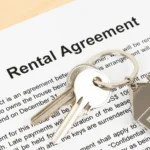How can the Contract be Secured?
Securing a rental contract is a crucial step for both landlords and tenants. From understanding the lease agreement to knowing your rights and responsibilities, navigating this process with care is essential. In this blog, we’ll delve into the various aspects of securing a rental contract, offering insights into the steps involved and the key considerations for landlords and tenants. Whether you’re a property owner seeking to protect your investment or a tenant looking for a secure and transparent rental arrangement, this blog will provide valuable guidance to help you confidently navigate the process.

Understanding the Rental Contract Process
The rental contract process can be complex and overwhelming, especially for first-time renters. Understanding the key components of the rental contract is essential to ensure a smooth and transparent rental experience.
Reading and Reviewing the Contract
Before signing a rental contract, reading and reviewing the entire document thoroughly is crucial. Pay close attention to the terms and conditions, including rental duration, monthly rent amount, security deposit details, and additional fees or charges. Understanding the responsibilities of both the tenant and the landlord is essential for a successful tenancy.
Seeking Legal Advice
If there are any uncertainties or concerns regarding the rental contract, seeking legal advice is advisable. A property management attorney can provide valuable insights and ensure the contract aligns with local rental laws and regulations. This step can offer peace of mind and protect the rights of both the tenant and the property owner.
Documenting Property Condition
Before moving in, it’s essential to document the condition of the rental property. This can involve photographing or video to capture any existing damages or issues. This documentation can serve as evidence of any disputes regarding the property’s condition upon move-out.
Understanding Lease Renewal and Termination
The rental contract should outline the procedures for lease renewal and termination. Understanding the notice period required for both parties and the conditions for lease termination can help tenants plan and avoid misunderstandings.
Finalizing the Contract
Once all terms and conditions have been agreed upon, the rental contract is finalized through the tenant and landlord’s signatures. It’s important to retain a copy of the signed contract for reference throughout the tenancy.
How to Make a Legal Contract Between Two Parties?
When it comes to property management, having a solid and legally binding contract is crucial for property owners and property management companies. This ensures that all parties involved are protected and clear on their rights and responsibilities for the property. Here are some key factors to consider when creating a property management contract:
Understanding the Importance of Securing a Property Management Contract
A well-crafted property management contract serves as a safeguard for both property owners and management companies. It outlines the terms of the agreement, including the scope of services, fees, responsibilities, and expectations. This provides clarity and helps mitigate potential disputes or misunderstandings down the line in the property.
Key Factors that Can Help Property Management Companies Stand Out
In a competitive market, property management companies need to set themselves apart to win over potential clients for the property. By emphasizing transparency, communication, expertise, and a proven track record, property management companies can instill confidence in property owners and demonstrate their commitment to providing exceptional service on the property.
Understanding the importance of securing a property management contract and highlighting the key factors that can help property management companies stand out, both parties can enter into a mutually beneficial and legally sound agreement for the property.
How to Secure a Contract with a Client?
When aiming to secure a contract with a client, it’s crucial to understand the legal aspects and the process involved. Here are the key elements to consider:
- Intention to Create Legal RelationsIt’s essential to communicate the intention to create legal relations. This involves demonstrating that both parties understand and acknowledge the legal implications of entering into a contract. By doing so, it sets the foundation for a legally binding agreement.
- Meeting of the Minds and Offer and AcceptanceThe concept of “meeting of the minds” refers to the mutual understanding and agreement on the contract’s essential terms. This is closely tied to the principles of offer and acceptance, where one party makes an offer, and the other accepts it without further conditions. Exploring these aspects ensures that both parties are aligned in their understanding of the contract.
- Insights into What Makes a Contract Legally BindingTo secure a contract, it’s vital to understand the elements that make it legally binding. This includes factors such as mutual consent, consideration, legal capacity, and lawful object. By addressing these components, you can ensure that the contract is enforceable and protects the interests of all parties involved.
By delving into these critical elements, you can navigate the process of securing a contract with a client effectively and in compliance with legal requirements.
What Are the Terms and Conditions for Negotiation?
Negotiating the terms and conditions of a property lease is a crucial aspect of the leasing process. It involves discussions between the landlord and the prospective tenant to reach an agreement that benefits both parties. Here are some key points to consider when negotiating terms and conditions for a property lease:
- Rent and lease duration
- Maintenance and repairs
- Pet Policies and Restrictions
- Subletting and roommates
- Security deposit and move-in costs
- Renewal and termination
- Amenities and utilities
Final Thoughts
Mastering the art of securing property management contracts is crucial for success in the industry. Property management professionals can effectively win over potential clients by implementing the strategies and insights discussed. Understanding property owners’ unique needs and concerns, and showcasing the ability to address them, is key to building trust and securing long-term partnerships. Additionally, staying updated with industry trends and maintaining a strong online presence can significantly enhance visibility and credibility. Ultimately, property management services professionals can confidently position themselves as valuable partners and secure contracts by prioritizing transparency, communication, and tailored solutions.






